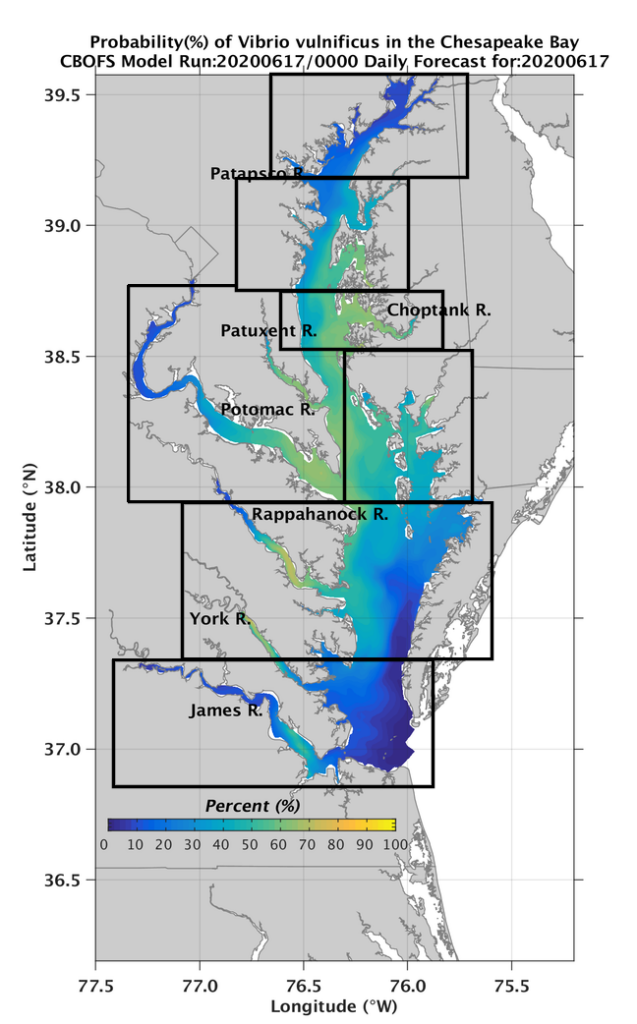
In 2019, NOAA released a new forecast capability which shows public health officials in Maryland and Virginia when and where the pathogenic Vibrio vulnificus bacteria is most likely to be found in Chesapeake Bay. The April to November seasonal forecast provides up to a two-day early warning of the probability of occurrence in bay waters.
As Chesapeake Bay waters warm, Vibrio vulnificus pathogens become more prevalent. This NOAA forecast will let public health officials know when and where people are most likely to encounter Vibrio pathogens in Chesapeake Bay throughout the 2020 summer season, enabling state officials to educate the public and reduce the risk of Vibrio infections by taking appropriate measures.
Vibrio spp. are bacteria that occur naturally in our coastal waters, but certain species and strains can be harmful to human health. Some Vibrio species, most notably Vibrio vulnificus, can cause a skin infection when an open wound is exposed to estuarine waters. While cases are extremely rare, guidance models such as this help in proactive management and monitoring of changes in distribution.
NCCOS led development of the model used to generate the forecast, which NOAA’s Center for Operational Oceanographic Products and Services helped become operational in November 2018. The operational forecast is available at nowcoast.noaa.gov, under Ecological Forecasts. For more information about NCCOS’s Vibrio model and to sign up for related updates and notifications via email, visit NCCOS’s Vibrio Predictive Models webpage.
